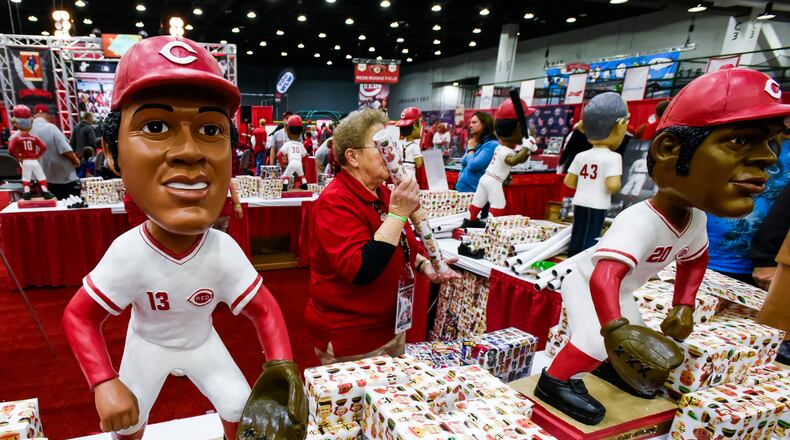The Associated Press has previously noted that the Ohio Supreme Court has agreed to hear arguments in a dispute over promotions offered by the Reds to ticket buyers — including bobbleheads and other items, meant to get fans in the seats at Great American Ballpark.
MORE: Dying on the job: 164 workers killed in Ohio
“At issue is whether the Reds are exempt from paying tax on the purchase of the promotional items,” the AP reported.
Attorneys for the Reds say they don’t have to pay tax on the purchase of these sorts of items because they essentially are part of the cost of a fan’s ticket package.
MORE: Plumber recovers Trotwood woman's $30K heirloom ring set
Ohio law exempts companies from paying tax on items they buy to resell.
However, there’s disagreement about that. The state tax commissioner says the promotional items should be taxed because the Reds bought the items as giveaways and they aren’t selling them with tickets.
In a blog post by Jonathan Entin — professor emeritus of law and adjunct professor of political science at Case Western Reserve University — at the web site, The Conversation, he writes that baseball teams maintain that their memorabilia are like "grocery bags or Happy Meals. The Reds say they factor the cost of those items into their ticket prices for every game during the season, so they should not have to pay a separate sales tax when they purchase them to give to fans as promotions."
OPENING TODAY: Downtown Dayton bike shop re-opened
The Ohio tax commissioner has disagreed with that analysis, Entin wrote.
“Upon review of the record before us, however, we conclude that the promotional items given to patrons on specific game days were not ‘resold’ to the patrons as part of the ticket price of admission, but were given away for free, primarily to increase interest in certain targeted games or generally increase interest among a broader audience,” said a June 2017 filing by the Ohio Board of Tax Appeals.
The three-member board unanimously concluded that the appellant (the Reds) “has not provided this board with competent and probative evidence in support of the position that it does not owe the assessed tax.”
The case is now before the Ohio Supreme Court. The Reds moved for an oral argument before the whole court, and that motion was granted Feb. 21. No date for the hearing is on the court docket.
Ohio has a state rate of 5.75 percent and Cincinnati imposes a 0.75 percent levy on top of that, so tens of thousands are at stake, Entin wrote. And maybe more, if the commissioner seeks back taxes.
About the Author

